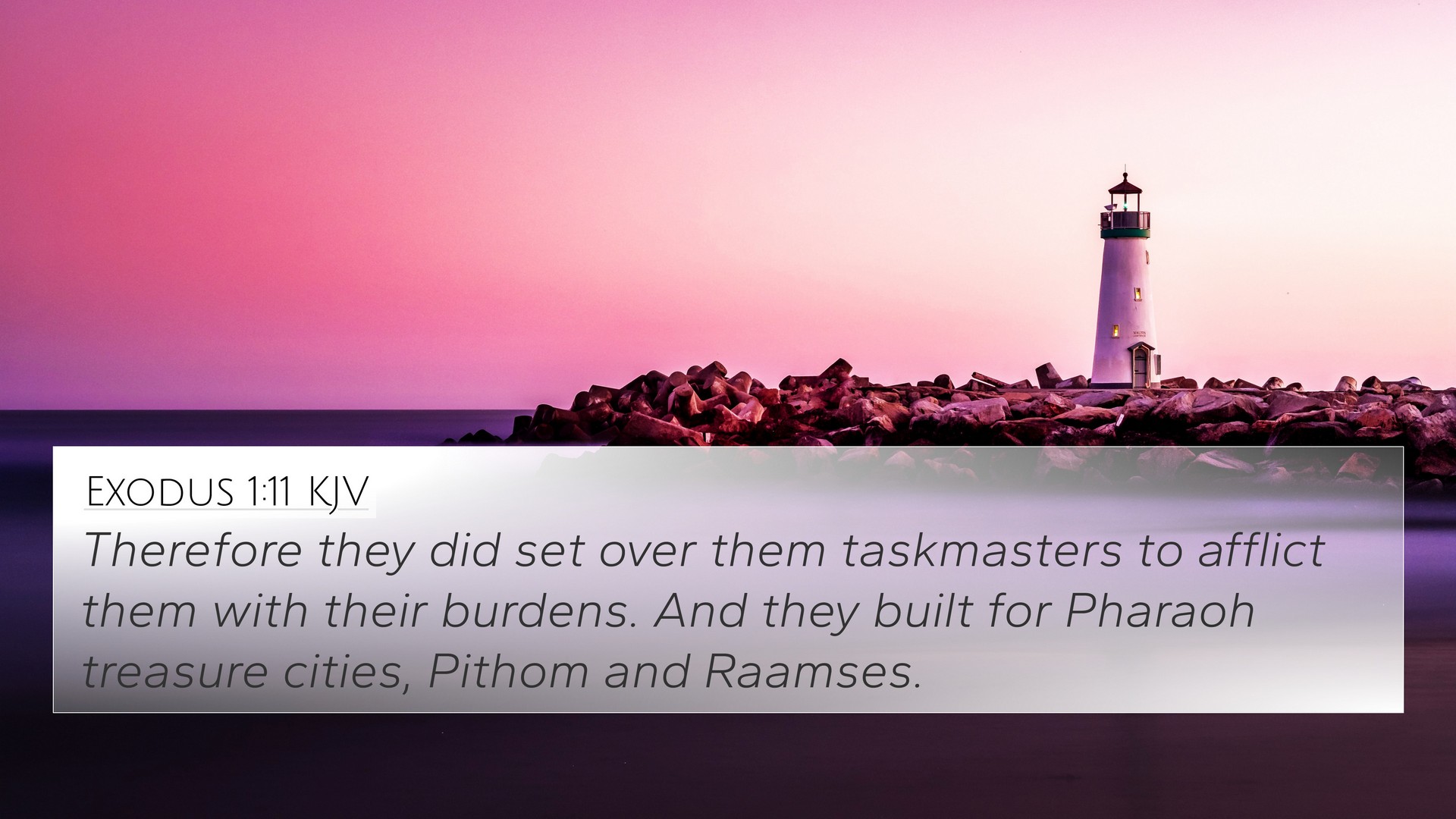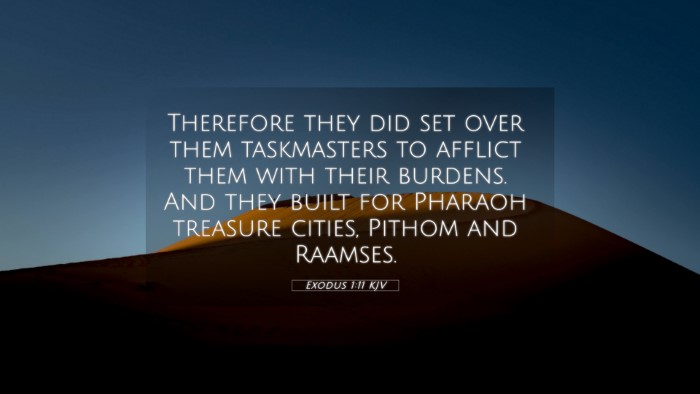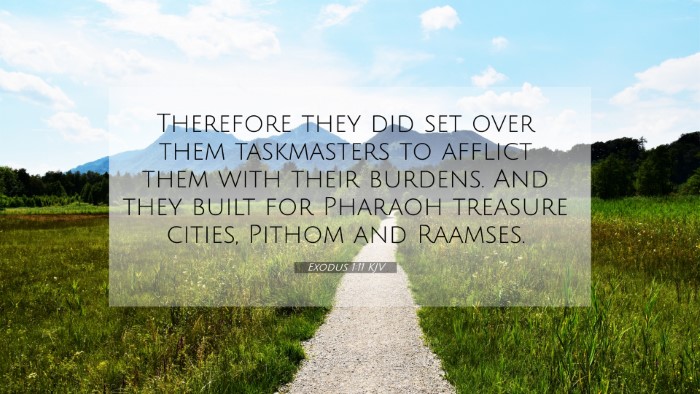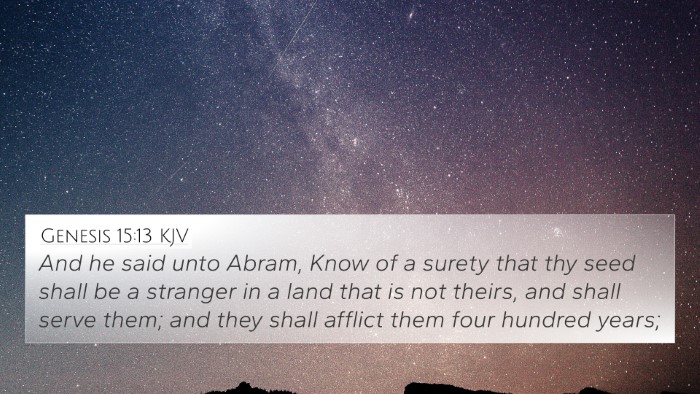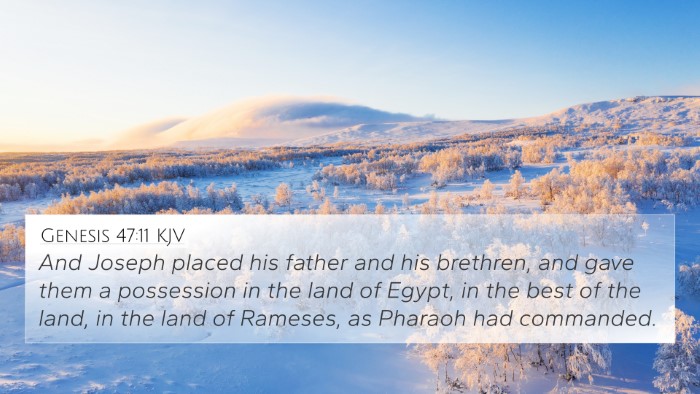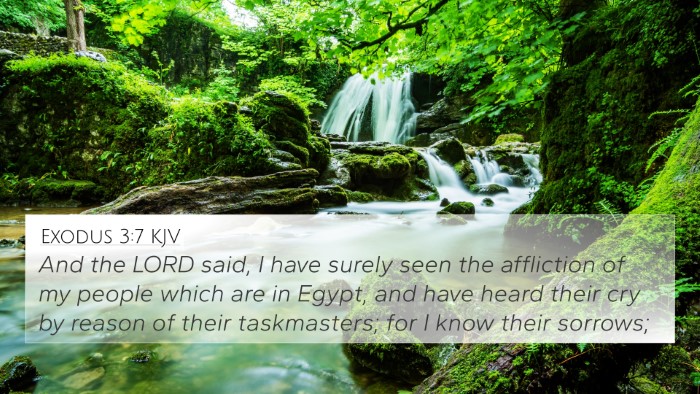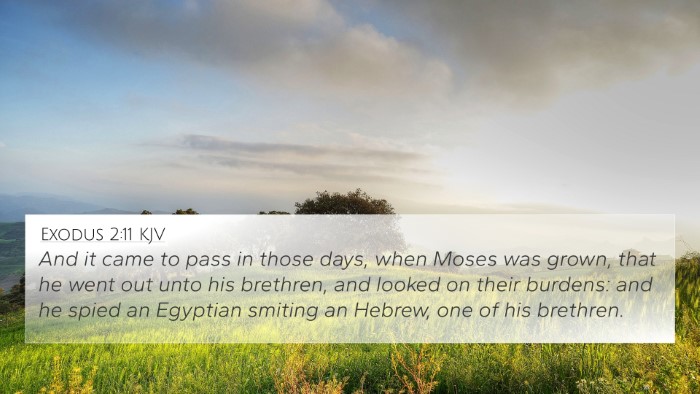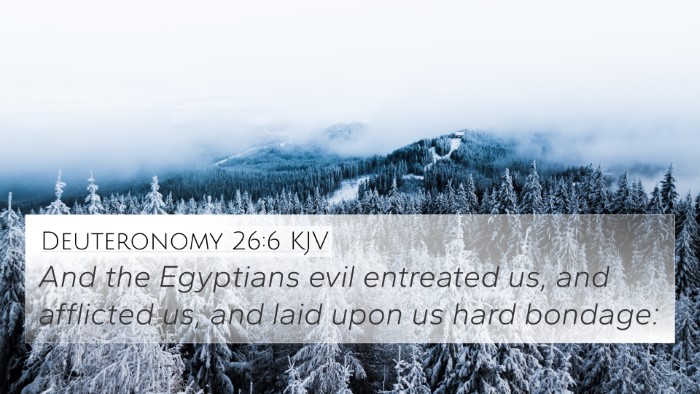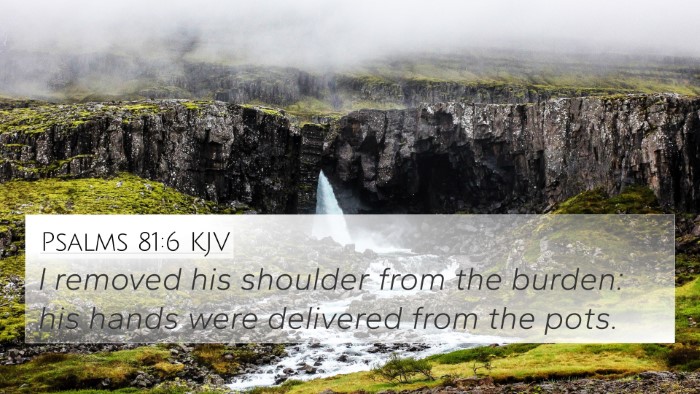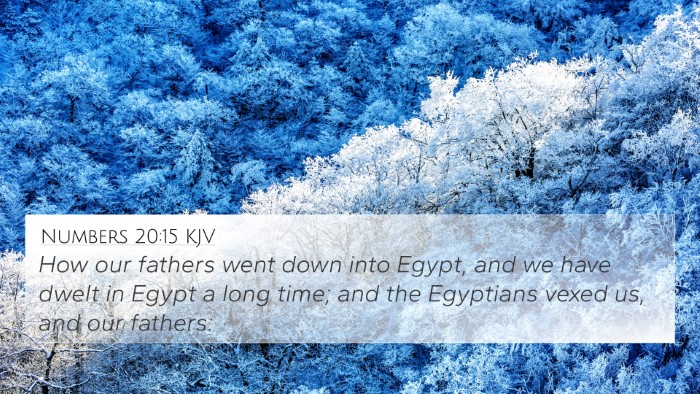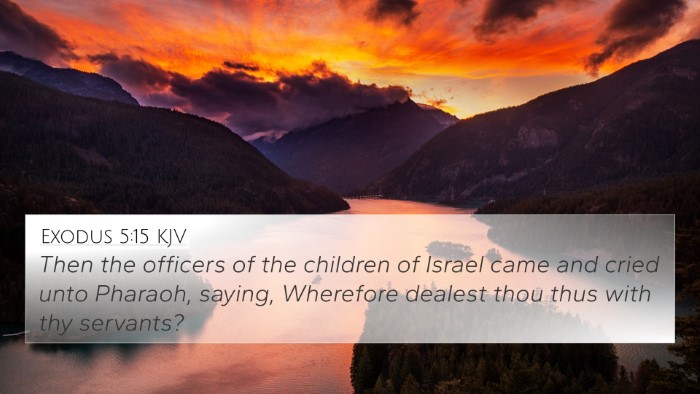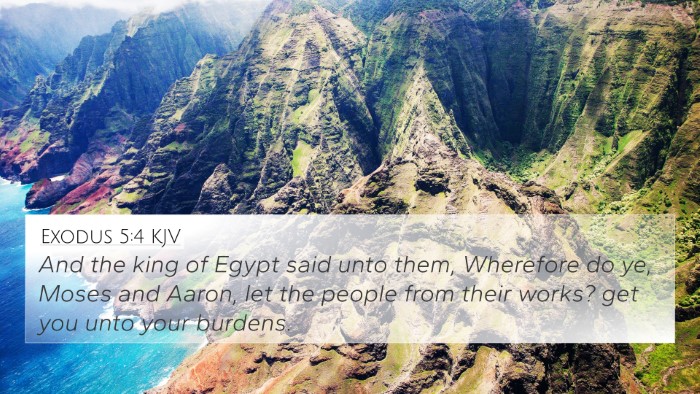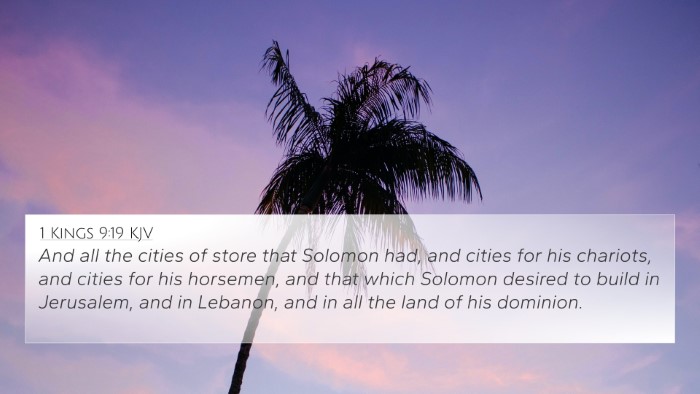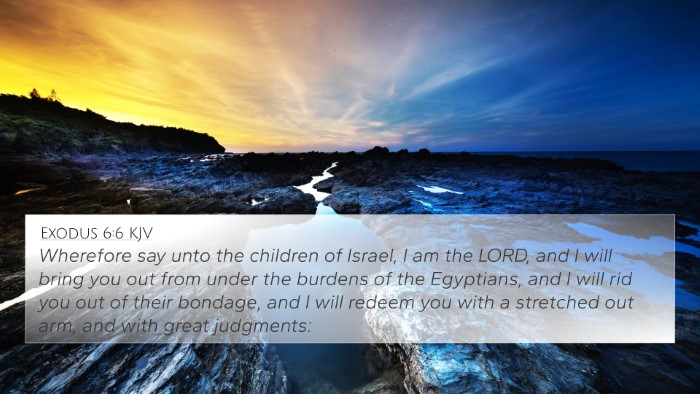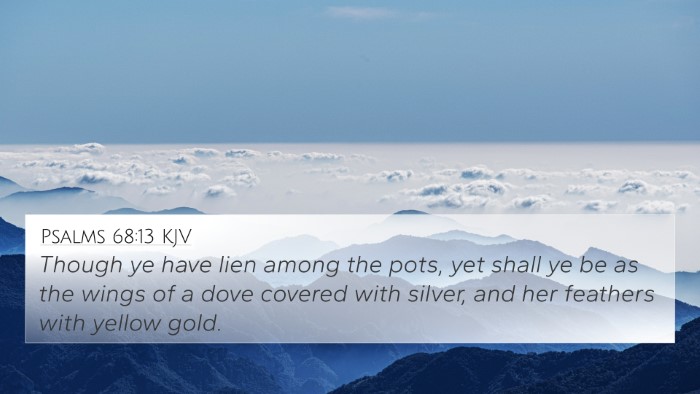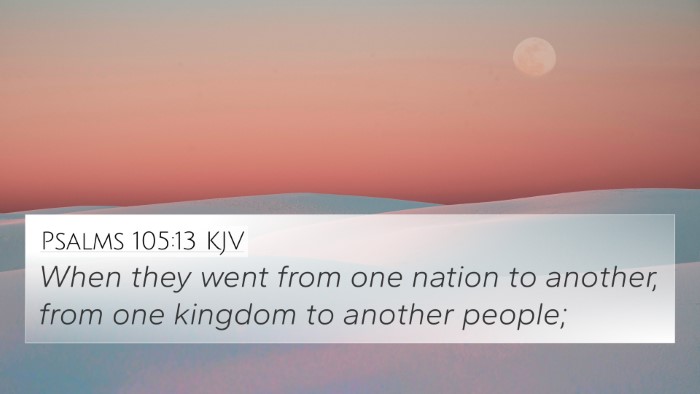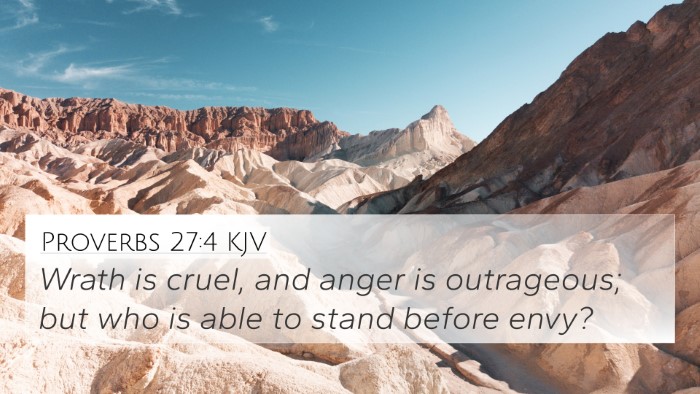Understanding Exodus 1:11
Verse: Exodus 1:11 - "Therefore they did set over them taskmasters to afflict them with their burdens. And they built for Pharaoh treasure cities, Pithom and Raamses."
Meaning and Interpretation
The verse Exodus 1:11 captures a pivotal moment in the history of the Israelites in Egypt. The insights gleaned from public domain commentaries such as those by Matthew Henry, Albert Barnes, and Adam Clarke reveal several layers of meaning.
Contextual Background
In the biblical narrative, the Israelites had multiplied in Egypt and became a significant population under the previous Pharaoh, who had favored them due to Joseph’s status. However, a new Pharaoh arose, who did not know Joseph, leading to their oppression.
Commentary Insights
-
Matthew Henry's Commentary:
Henry emphasizes the shift in Pharaoh's attitude toward the Israelites, illustrating how fear can drive oppression. The verse reflects on societal dynamics where a new ruler may choose to oppress a people out of fear of their growth and potential influence.
-
Albert Barnes' Notes:
Barnes discusses the strategic implementation of taskmasters. This move represents an organized form of slavery, where the Israelites were tasked with building cities, symbolizing both their subjugation and the productivity forced upon them.
-
Adam Clarke's Commentary:
Clarke highlights the irony of the phrase "treasure cities," as it underscores the exploitation of the Israelites. Their labor was harnessed for the benefit of Pharaoh, transforming them from favored guests to enslaved laborers.
Thematic Connections
Exodus 1:11 illustrates several overarching themes that permeate throughout the Scriptures:
- Oppression and Deliverance: The Israelites’ suffering foreshadows their eventual deliverance through God’s intervention.
- Productivity under Duress: The concept that even in hardship, those oppressed can contribute significantly to the larger society.
- The Role of Governance: The dynamics between rulers and the ruled are highlighted, showing how power can corrupt and lead to injustices.
Bible Verse Cross-References
To enhance understanding and see the inter-Biblical dialogue, here are some important cross-references related to Exodus 1:11:
- Genesis 15:13 - God foretells the Israelites' affliction in Egypt.
- Exodus 1:13-14 - Further expounds on the harsh treatment of the Israelites.
- Numbers 20:15 - Reflects on Israel's suffering in Egypt.
- Psalm 105:25 - Describes how God turned the hearts of the Egyptians against His people.
- Acts 7:19 - Stephen recounts the oppression of the Israelites.
- Isaiah 52:4 - Speaks of the oppression of God's people in Egypt.
- Revelation 11:8 - Symbolically refers to Egypt in the context of oppression.
Connections Between Bible Verses
By examining the connections between these verses, we can appreciate the recurring themes of struggle, divine protection, and eventual redemption that characterize the Biblical narrative. The trauma experienced by the Israelites is a foundational story that culminates in the Exodus and the establishment of a covenant with God.
Tools for Bible Cross-Referencing
For a more profound study, readers can utilize:
- Bible concordance for thematic studies.
- Bible cross-reference guide to explore scriptural relationships.
- Cross-reference Bible study methods to deepen insights.
Conclusion
In grasping Exodus 1:11, we uncover not just the historical account but also the profound spiritual and theological truths that resonate across the Bible. This analysis reveals how the oppression of the Israelites serves as a backdrop for themes of hope, resilience, and divine deliverance, ultimately leading to the establishment of a covenant with a redeemed people.
